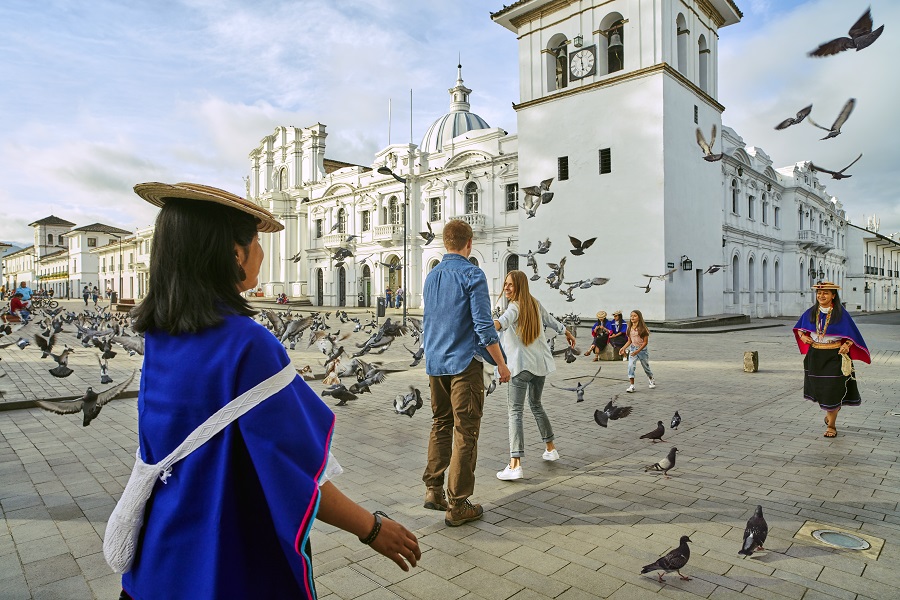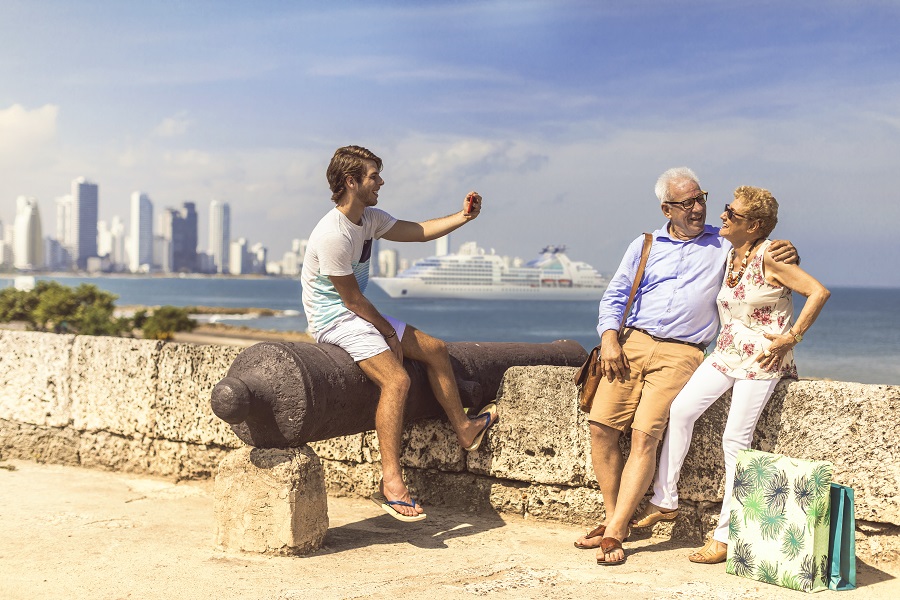
Breaking Travel News interview: Flavia Santoro Trujillo, president, ProColombia
Through her role as president of ProColombia, Flavia Santoro Trujillo is committed to promoting tourism and foreign direct investment in the country, as well as strengthening international ties that bring the South American destination closer to new business opportunities.
As the country seeks to remerge from the coronavirus pandemic, Trujillo here explains to Breaking Travel News editor Chris O’Toole what measures are being put in place to keep visitors safe as they return.
Breaking Travel News: Where does Colombia stand in regard to reopening post Covid-19, ahead of a proposed relaunch at the end of August? Latin America has become the global epicentre of the outbreak in recent days – does this pose a renewed threat to the tourism sector?
Flavia Santoro Trujillo: The Colombian government has enacted a swift response to Covid-19 and has kept the toll of infection and death relatively low compared to other Latin American nations.
The country has one of the lowest rates of infection and deaths per million inhabitants, as compared to countries in Europe and Latin America.
Our nation took early isolation measures, which allowed us to strengthen the health system capacities by increasing ICUs and buying emergency supplies and medical equipment.
ADVERTISEMENT
The social distancing implemented throughout the country was also key in slowing the virus infection rate.
However, these measures that aim to save lives, have also had a great impact in our economy.
The government has implemented relief initiatives to assist businesses from different sectors, which include tax waivers, payroll payment assistance and forbearance on social security obligations.
In addition to this, the government has extended lines of credit through government controlled financial institutions and has reduced interest rates.
Colombia has attempted to find a balance between adequate distancing and economic activity by keeping open sectors that were crucial for the economy and our supply chain, including food, agriculture, financial and essential services.
Construction and some manufacturing sectors have already resumed activities and in the coming weeks, with the proper protocols, a wider portion of the economy will reopen.
We are confident about the future. We believe that these measures that we have taken to face the pandemic, will help Colombia recover its economic and social growth path once this has passed.
In summary, we look forward to receiving international passengers once more and the goal of tourism reopening, starting with international flights resuming on September 1st.

BTN: There are some green shoots of recovery – with Air Canada confirmed as the first international carrier to announce its return to Bogotá’s El Dorado airport in September. How long do you envisage a full recovery from the pandemic will take?
FST: It is too early to say when tourism will fully recover however, Colombia is working towards this goal and international flights will resume on September 1st.
Currently, disembarkation is only allowed in the event of a humanitarian emergency, fortuitous events, and air cargo operations.
We look forward to receiving international passengers once more at our airports and to our country, from September 1st.
We are very happy to welcome Air Canada back to El Dorado airport and other airlines that will follow.

BTN: How will the financial difficulties, and potential bankruptcy, of flag-carrier Avianca impact on tourism in Colombia?
FST: Latin American airlines are going through a complex situation, not dissimilar from what is happening in other parts of the world.
In the case of the two main operators in the region, Avianca and LATAM, they are both undergoing a process of debt reorganisation, having filed for chapter 11 bankruptcy protection in the United States.
The Colombian government is making great efforts to leverage the sustainability of airline connections and operators through different measures, including more flexible regulation, greater liquidity with credits and the postponement of tax deadlines, as well as import of inputs for maintenance with zero tariffs and the promotion of air cargo services.
The government continues to evaluate alternatives to assist the aviation industry, as connectivity is one of the keys of the economic recovery.

BTN: Colombia has become the first country in Latin America with a tourism biosecurity stamp - supported by the World Tourism Organisation - what can you tell us about that?
FST: We are focused on regaining the international traveller’s trust in their ability to safely visit and travel within Colombia.
In support of this objective, the Colombian Government has created the Tourism Biosecurity Certification.
Colombia, with the support of the World Tourism Organisation (UNWTO), is officially the first country in Latin America with this type of certification.
The Tourism Biosecurity Seal, created by the ministry of trade, industry, and tourism, with the support of ProColombia, aims to generate trust among travellers, minimising the risk of viral infection and encouraging tourism throughout the country.
The certification, valid for two years, is voluntary and may be used by tourism related services providers, tourist areas, and tourist attractions in order to certify compliance with biosafety protocols.

BTN: At a time when many destination management companies are pausing international promotional activity during Covid-19, ProColombia is picking up its efforts – what are the ambitions here?
FST: We are convinced the tourism industry has immense resiliency and that it will play a crucial role in the recovery of Colombia and the global economy.
We have used this time of isolation to prepare ourselves for when tourism activities resume.
At ProColombia we have been working on a recovery plan focusing our efforts on three following priorities.
The first is adapting to change.
Our government has provided tools to help travel sector companies maintain their businesses through refocusing and residing strategies, as well as redesigning products and experiences according to new types of consumers and changes in market behaviour.
We must also facilitate air transport connectivity.
We have reduced sales tax on tickets that have origin or destination to Colombia, applicable to airlines until December 2021, and we have begun to reopen international flights.
Finally, we are working to reinforce the international traveller’s trust in their ability to safely visit and travel within Colombia.
ProColombia created and launched a multi-channel campaign in March with the message ‘We´ll meet soon’, to stay front of mind with travellers around the world.
It has reached 12 international markets and generated 21.3 million impressions.

BTN: The post-Covid-19 traveller is expected to place a renewed emphasis on hygiene – what measures is Colombia putting in place to ensure the health and safety of visitors?
FST: As we discussed before, we are the first country in Latin America to create the Tourism Biosecurity Certification, with the support of the UNWTO.
In addition, the ministry of transport, the ministry of health and social protection of Colombia with the support of the International Air Transport Association (IATA), among other organisations, are working on new security protocols for all Colombian airports.
For example, El Dorado Airport in Bogotá will be implementing new measures such as thermal cameras, portable sinks, sanitising stations at various locations throughout the airport, as well as digital immigration procedures.
More Information
Find out more about visiting Colombia – when the time is right – on the official website.

